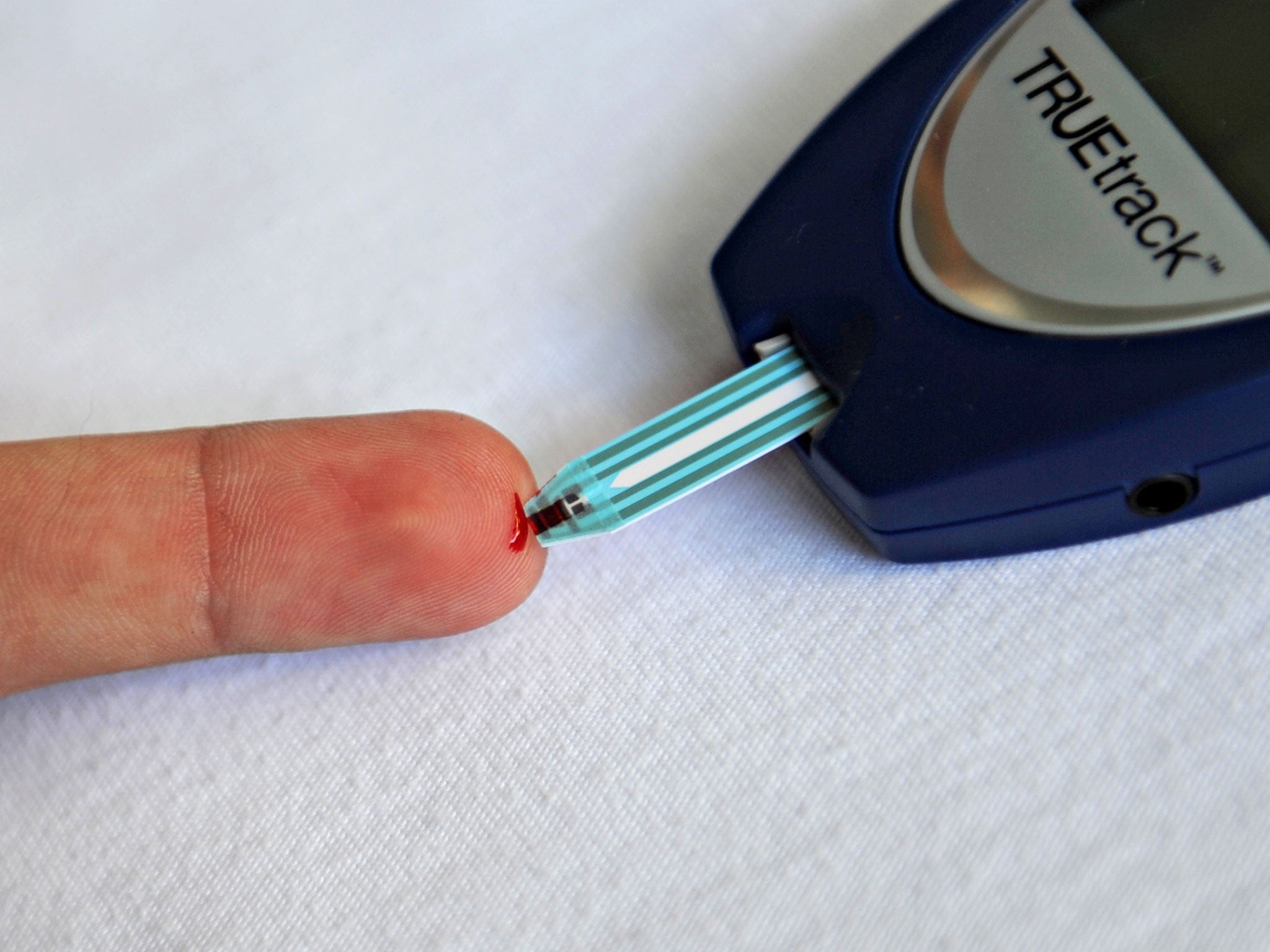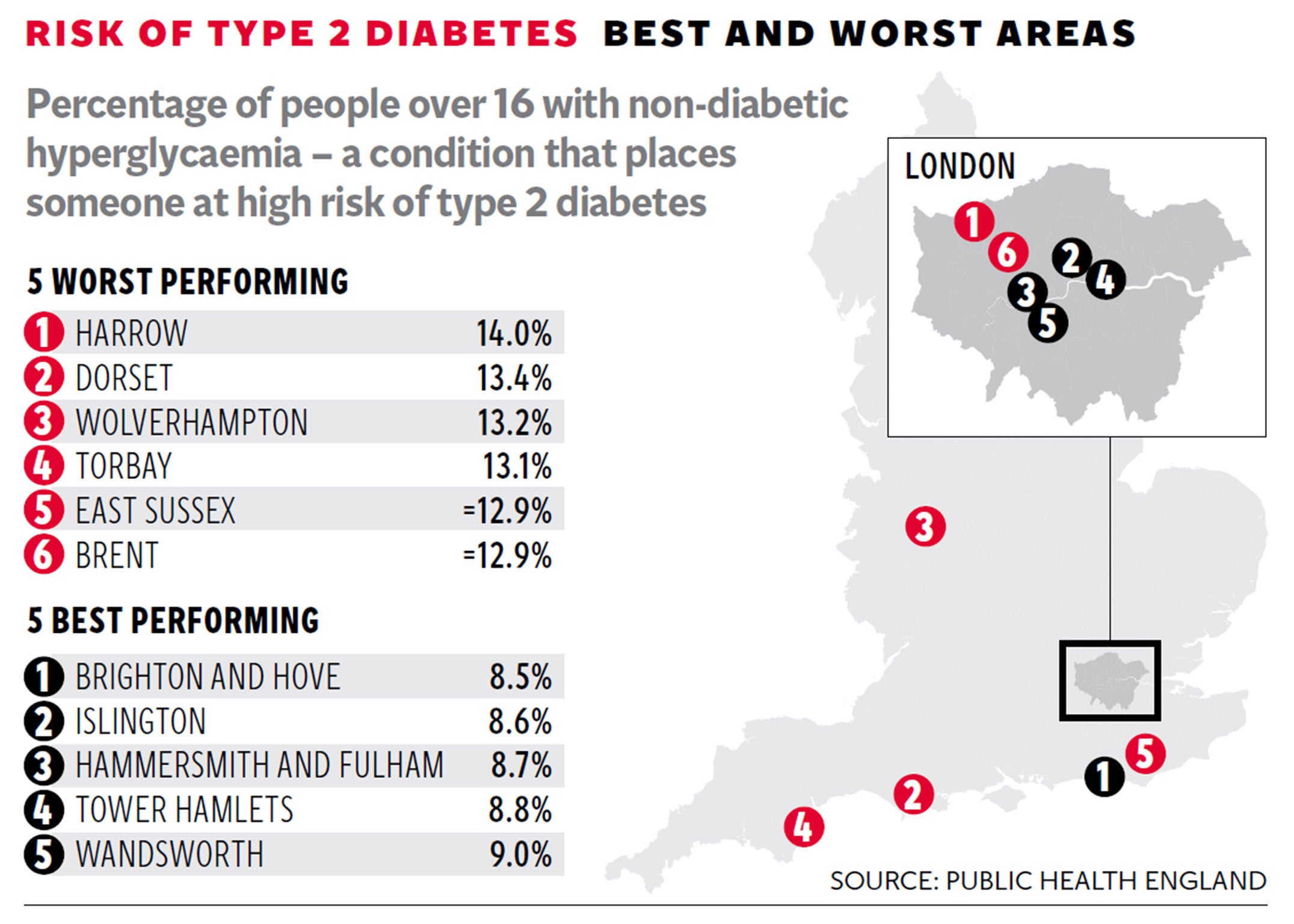Diabetes cases in the UK rise by 65% in 10 years
Around 90 per cent of diabetes cases are linked to unhealthy lifestyles and obesity

Your support helps us to tell the story
From reproductive rights to climate change to Big Tech, The Independent is on the ground when the story is developing. Whether it's investigating the financials of Elon Musk's pro-Trump PAC or producing our latest documentary, 'The A Word', which shines a light on the American women fighting for reproductive rights, we know how important it is to parse out the facts from the messaging.
At such a critical moment in US history, we need reporters on the ground. Your donation allows us to keep sending journalists to speak to both sides of the story.
The Independent is trusted by Americans across the entire political spectrum. And unlike many other quality news outlets, we choose not to lock Americans out of our reporting and analysis with paywalls. We believe quality journalism should be available to everyone, paid for by those who can afford it.
Your support makes all the difference.The number of UK adults living with diabetes has risen by more than 65 per cent in 10 years.
Almost 3.5 million people were diagnosed with diabetes between 2014 and 2015, according to an analysis of GP data condcuted by the British Heart Foundation.
Number of recorded diabetes cases rises by 65 per cent in 10 years
Patient data for 2014-15 shows 3,453,054 people were diagnosed with diabetes, up from two million in 2004-05.
The number of those living with Type 2 diabetes, which is linked to unhealthy lifestyles and obesity, could be as high as 3.1 million. Around 90 per cent of diabetes cases are Type 2.
However there is no breakdown for Type 1 or Type 2 diabetes in the data.
Diabetes can encourage the build-up of fatty deposits in coronary arteries supplying the heart with oxygen-rich blood, which can lead to coronary heart disease, increasing a person's risk of heart attack or stroke.

To mark World Diabetes Day, The British Heart Foundation, Diabetes UK and Tesco have announced they will give more than £3m in funding for research into new ways of treating the blood vessel damage associated with diabetes.
Talking about the research, Doctor Richard Cubbon said: "We are currently unable to reverse blood vessel damage caused by diabetes.
"We’re studying a protein which could be involved in blood vessel repair, which could lead to new drugs that help prevent the deadly heart attacks and strokes associated with diabetes.”
Chris Askew, chief executive of Diabetes UK, said: “The number of people with diabetes is rising at an alarming rate and every year there are more than 20,000 people who die tragically young as a result of the condition.
“Given the scale and the seriousness of the condition, it is vital that there is more research into better treatment and, ultimately, into finding a cure.
"Diabetes remains one of the biggest health challenges of our time. We must protect the health of the nation by taking urgent steps to get to grips with it or we will continue to see more and more people dying before their time.”
Join our commenting forum
Join thought-provoking conversations, follow other Independent readers and see their replies
Comments